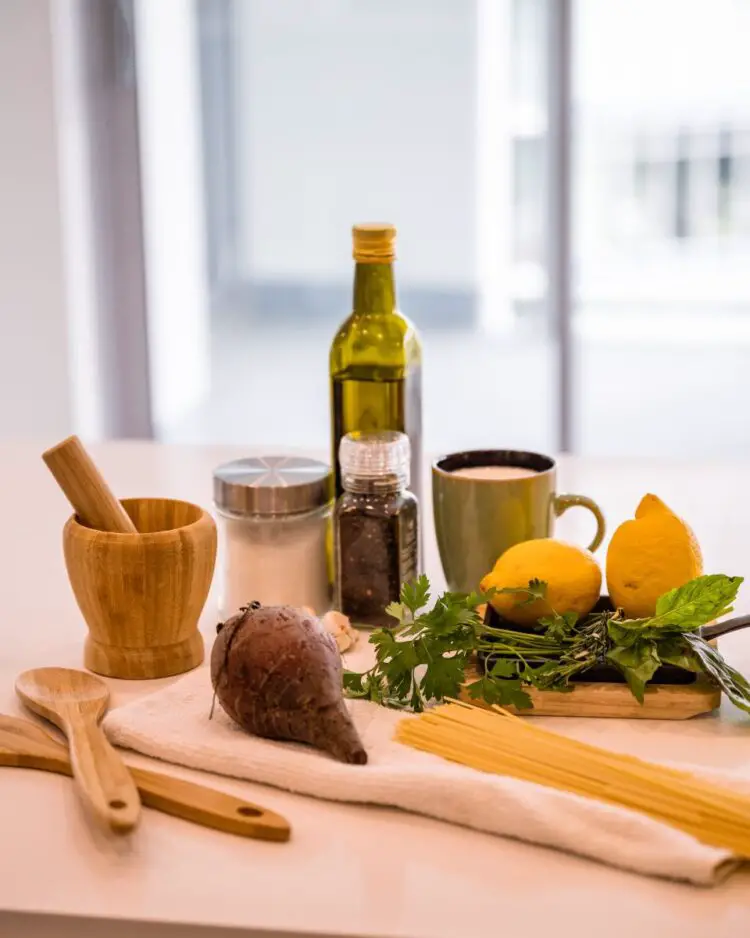There is something magical about wood, a warm feeling when you hold it – a smoothness when properly finished, a sense of opulence, and a feeling of being responsible for the planet. If wood is a luxury, olive wood, which grows so slowly is doubly so.
Olive wood is ideal for kitchenware as it is dense and highly resistant to odors and stains while providing a classy touch to the kitchen. Olive wood kitchenware is a new classic, swiftly replacing plastic in our lives. This durable item is an investment, which needs to be cared for properly in order to maximize its value and extend its lifetime.
Olive wood kitchenware is becoming more popular with young cooks who are looking for something stylish, practical, long-lasting, and renewable. Wood meets these requirements and olive wood even more so, with its beautiful fine-grained patterns. However, using these products requires small precautions in order to maintain their appearance and usefulness.

Why is olive wood so prized in the kitchen?
What to do with brand new olive wood utensils and chopping boards?
New olive wood utensils and chopping boards must be seasoned prior to use. Seasoning wood seals the wood grain prior to use, making it much harder for bacteria to penetrate the wood or for water to seep in and damage the wood. A properly seasoned chopping board will last much, much longer and will be resistant to rot, mold, strong smells, and flavors, retaining its luster for longer.
Seasoning wood is a very simple process, requiring you to place a small amount of oil on a soft cloth and gently rub the oil over the entire utensil, allowing it to soak into the wood. Once done, leave the utensil to dry out of direct sunlight and repeat the process a second time. Once the second coat has been fully absorbed and the utensils are dry to the touch, it is safe to use them.
Avoid using cooking oils in this process as they will oxidize and go rancid over time, leaving behind a bad odor. Rather use food-grade mineral oil or coconut oil in a pinch, See our useful guide on what oils are safe to use on wooden cutting boards and wooden kitchenware in general for more information.
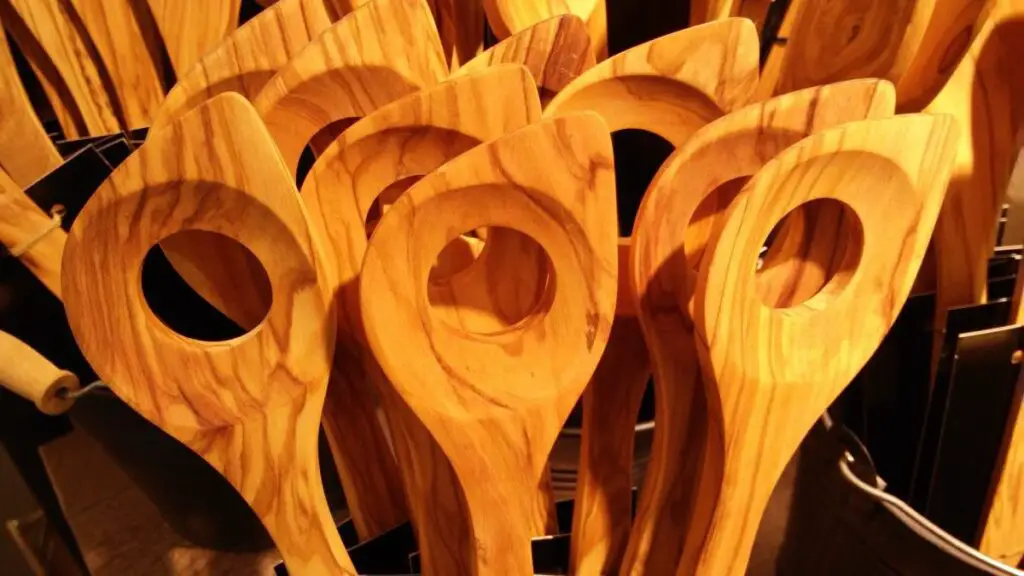
How to wash and dry your olive wood kitchenware?
Olive wood kitchenware should never go into your dishwasher. The high temperatures of the drying cycle will extract the oil from the wood, leaving it unprotected and dry, with open pores, leading to the wood to cracking while at the same time enabling bacteria to make their way into the wood.
The best way to wash olive wood kitchenware is to simply hand wash them with a mild detergent, using warm water and a soft sponge, with a light scrubbing from the nylon abrasive on the sponge to remove hardened residue on the utensil. Once clean, keep the utensil upright on your drying rack, with the base elevated above any water puddle to avoid contact.
Do not let the olive wood kitchenware air-dry but rather wipe it dry with a cloth as soon as possible. If possible, re-oil the kitchenware at least twice a year, though preferably once every week if using them frequently.
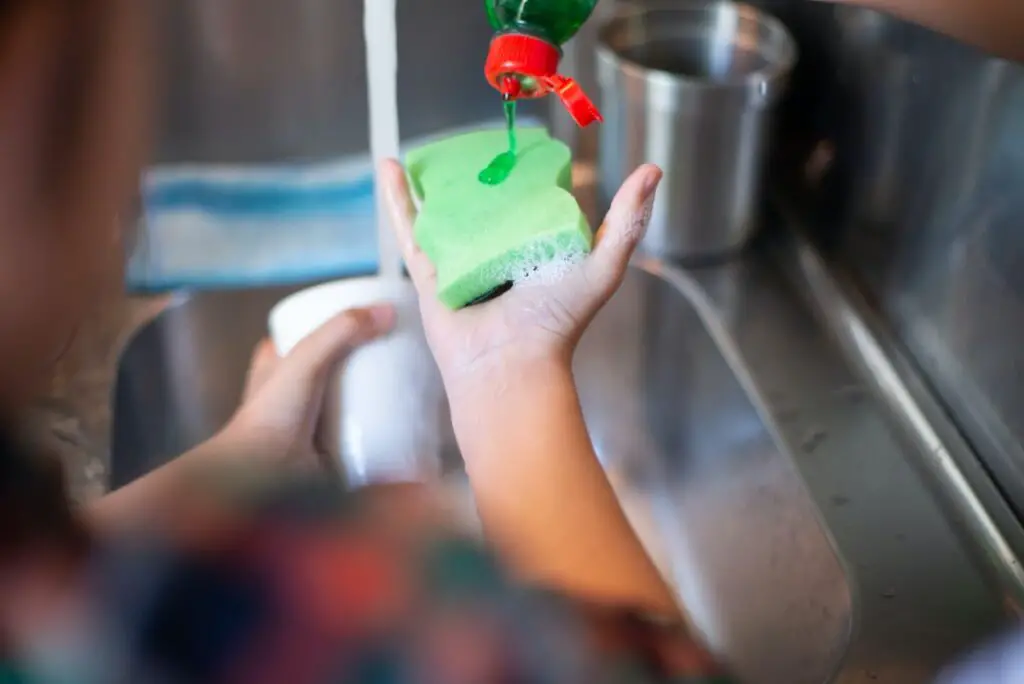
Do you need to wash all your wooden kitchenware?
No. Some items such as salad serving spoons, which are only ever used with salads that only contain vegetables, can be simply wiped clean with a kitchen paper towel and returned to the drawer. Some people even swear by the oil used in salad dressings, relying on the vinegar from the dressing to kill bacteria and using the oil in the dressing to season the utensils.
Of course, if the utensils come into contact with non-vegetable matter such as meat, eggs, dairy (cream, cheese), etc, then it is best to wash and possibly sanitize the olive wood prior to packing it away.
Can your olive wood kitchenware go in the dishwasher?
no. While the detergents used these days are very mild and should not damage the olive wood, the last step followed by the dishwasher is a drying step, where the interior of the dishwasher is heated to remove water droplets from the dishes. The high temperature required tends to strip out the oils from the olive wood and leaves the utensils dried out and cracked. This destroys the appeal of the olive wood utensils and greatly reduces their lifespan. Re-oiling the kitchenware will allow them to recover some sheen, but the underlying damage has already been done.
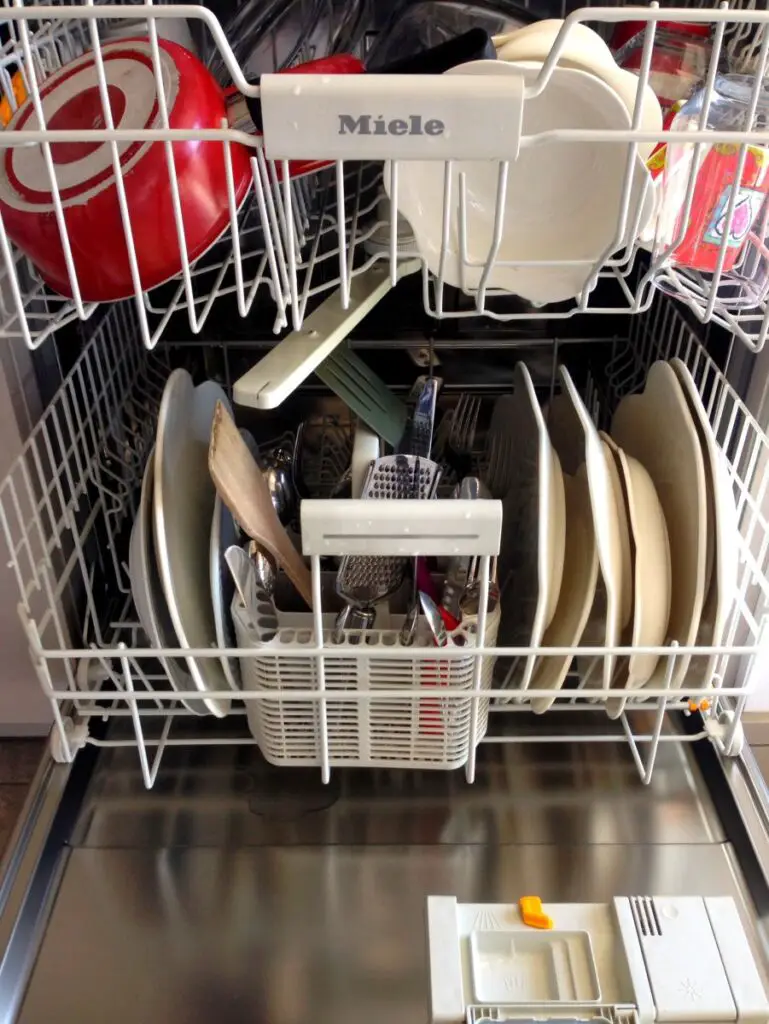
Can Using an Air Fryer Help Extend the Lifetime of Olive Wood Products?
Using an air fryer can contribute to the smart use of air fryer olive wood products. The dry heat from the air fryer can help to prevent the wood from becoming too moist, which can cause warping and cracking. This can extend the lifetime of olive wood products and keep them looking beautiful for years to come.
How to sanitize olive wood kitchenware?
Occasionally, it is useful to sanitize the olive wood kitchenware. This is often required if the wood was dry or damaged and placed into contact with products such as meats, dairy, eggs, etc which can carry harmful bacteria. Should the wood have been damaged or its protective layer of oil has been compromised, then there is a good chance that bacteria would have made their way into the pores of the wood. In such circumstances, a simple sanitizing protocol and re-seasoning of the wood are implemented.
To sanitize your olive wood utensils, simply wash them as normal and immerse them in a 3% hydrogen peroxide / /water solution for 10 to 15 minutes. This will allow the hydrogen peroxide to enter the exposed pores of the wood and destroy any lurking bacteria. Remove them from the solution, rinse them and dry them with a cloth. Then re-season the utensils to seal all of the pores.
How to neutralize strong aromas that penetrate your olive wood?
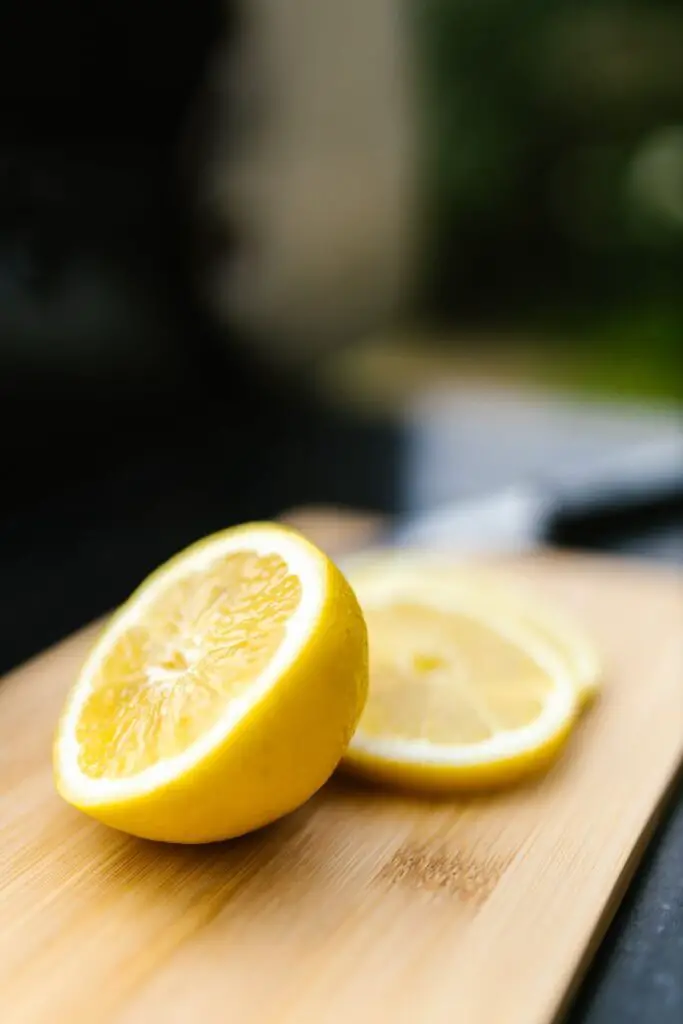
A new olive wood utensil is a delight to hold and to smell. Olive wood has a naturally sweet and bright scent, which is slightly fruity and “green”, like fresh-cut grass. Surprisingly, oiling your kitchenware with olive oil is not a good idea. While you may make the utensils smell like new temporarily, very soon the oil will oxidize, go rancid and smell terrible.
It is possible that over time your olive wood kitchenware absorbs strong aromas such as garlic and onion. As this may be distracting and could cross-contaminate more delicate dishes, a quick rub of the affected area with some lemon juice or a baking soda paste will help.
Simply cut a lemon in half, and rub the exposed surface of the lemon over the olive wood utensil. If you have a lot of chopping boards or utensils to cover, refresh the exposed surface of the lemon by cutting a thin slice off the lemon and discarding this slice.
If you prefer to use the baking soda paste approach, simply make a thick paste by adding a few drops of water at a time to a tablespoon of baking soda. Once you have a paste similar to toothpaste, rub the paste over the affected area and allow it to sit for a good 30 minutes, then rinse and wipe away any residue.
For very stubborn smells, alternate the techniques a few times.
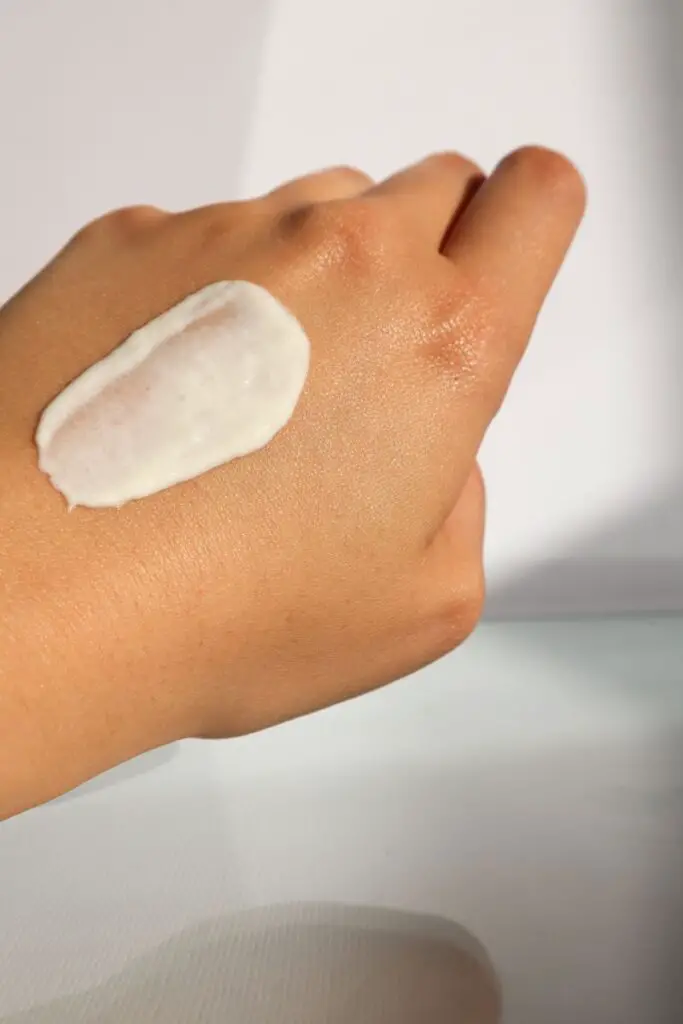
How often should you oil your olive wood kitchenware?
As a rule of thumb, oil your olive wood kitchenware every week if using the items daily. if you use the items only once in a while or for special occasions, oil them at least every 2 months to keep them in peak condition. Olive wood will tell you when it needs to be oiled as it will lose its sheen.
The process is the same as for seasoning the olive wood… simply apply a bit of food-grade mineral oil to a cloth and wipe down the kitchenware. Then, allow to dry for a couple of hours, wiping off any extra residue after this time with a clean, dry cloth.

